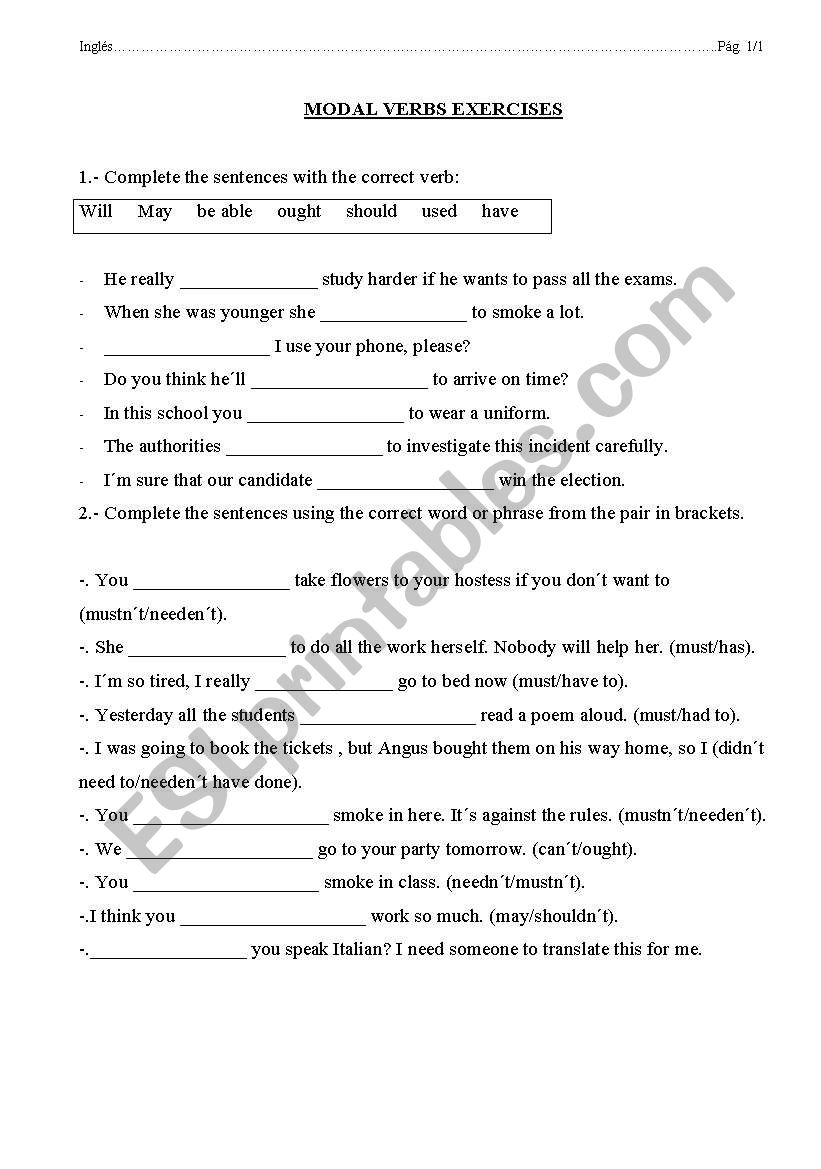
Please know, though, that you'll probably need to spend some time noticing them in different contexts (ideally as you read text or listen to speech) to really understand them well. It's really difficult to summarise these uses in a few posts here, but I will try to help you here. Modal verbs are used in a number of ways, which can make understanding them a little challenging. We use must have and should have for the past: We use should to suggest something is true and we have reasons for our suggestion: We use must to show we are sure something is true and we have reasons for our belief: If Jones was at work until six, he couldn't have done the murder. We use can't have or couldn't have to say that a past event was impossible: We use can't or cannot to say that something is impossible: (= People often got lost in that town.) could and could have (= It was sometimes very cold there in winter.) We use could to make general statements about the past:

Where are they? They could have got lost. We use may have, might have or could have to make guesses about the past: Notice the difference in meaning between can and may/ might/ could: He may/ might/ could be(NOT can) in his office. We do not use can to talk about specific events:ī: I'm not sure. (= People often get lost in this town.) Be careful! (= It is sometimes very cold here in winter.)

We use can to make general statements about what is possible: We use may, might and could to say that something is possible, but not certain:


 0 kommentar(er)
0 kommentar(er)
